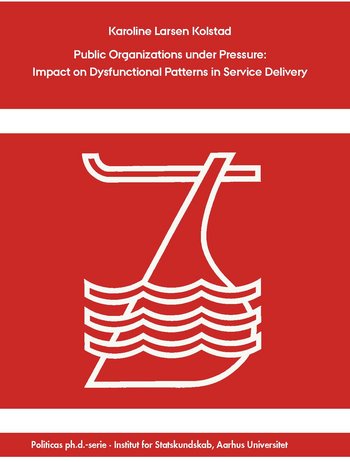Karoline Kolstad Larsen
Public Organizations under Pressure: Impact on Dysfunctional Patterns in Service Delivery

Public service organizations and their employees serve millions of citizens on a daily basis, and sometimes, dysfunctional patterns in service provision occur. Examples include misjudgments, poor service quality and instances of discrimination. These failures are often attributed to the challenging working conditions that public employees operate under, such as high workload and high-stakes performance targets. This is a widespread narrative in the public and in the academic literature, but the narrative has only been put under limited empirical scrutiny. That is why this dissertation examines the narrative by investigating how Danish primary schools and unemployment agencies respond to real-world pressures arising from high workloads and performance management systems. Surprisingly, the dissertation demonstrates that the studied organizations are capable of handling substantive pressures without turning to dysfunctional reactions. As a result, these examples run counter to the widespread narrative. Going one step further, the dissertation suggests that the organizations are equipped to handle the pressures because of professional norms, administrative support systems and managerial buffering of the street level. Based on this, the dissertation proposes that the solution to dysfunctional service delivery might lie in constructing well-functioning organizational structures that give public service employees the means to handle the pressures that will inevitably arise.
![]() Ophavsretten tilhører Politica. Materialet må ikke bruges eller distribueres i kommercielt øjemed.
Ophavsretten tilhører Politica. Materialet må ikke bruges eller distribueres i kommercielt øjemed.